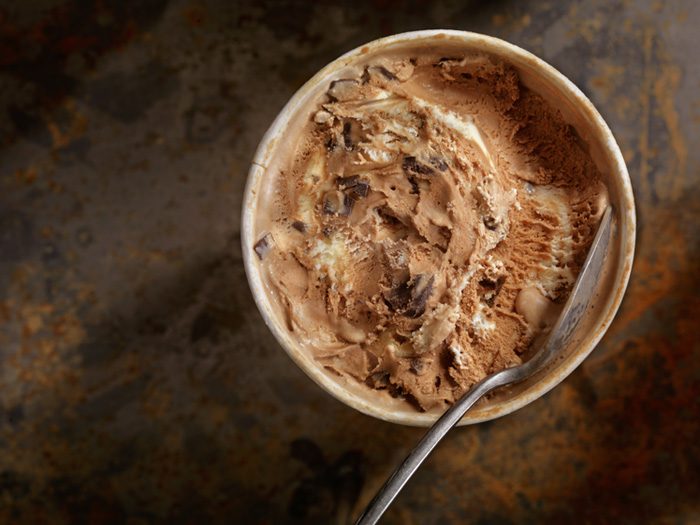Product Tampering Gone Viral: The Scourge of the Blue Bell Ice Cream Lickers

I scream, you scream, Blue Bell screams to stop licking their ice cream.
A recent viral video has raised reasonable cause for health concerns. Footage posted to Twitter shows a teenage girl removing a carton of Blue Bell ice cream from the freezer of a Texas Walmart, licking it, and proceeding to put it back on the shelves.
The worst part? The video inspired others to take the same challenge, copying the minor’s actions and carelessly increasing the risk of contamination.
And apparently it’s not just limited to frozen treats and supermarkets.
In recent developments, a Florida mom was caught taking it a step further after she posted a video to Snapchat of her daughter licking a tongue dispenser at her doctor’s office and putting it back in the jar. The mother now faces jail time.
On top of the severe consequences, the strange predicament is causing unrest for a company that is still recovering from a foodborne illness outbreak. In 2015, Blue Bell Ice Cream was forced to recall 8 million of gallons of ice cream after listeria was traced back to one of their plants. The incident was linked to three deaths and dozens of other cases.
By the Numbers:
128,000: That’s the number of hospitalizations per year in America due to foodborne illness.
1,450 Blue Bell employees were laid off during the 2015 outbreak, which was one-third of the company’s workforce.
93% of cases of food borne illnesses have increased since 2012.
36 states were forced to recall romaine lettuce in 2018, two days before Thanksgiving. A strain of E. Coli was traced back to Adam Bros. Farms in Santa Maria, California less than a month later.
Companies Fight the Silent Risks of Foodborne Illness
As unlikely as it may seem, foodborne illnesses are much easier to track within large retailers such as major grocery corporations rather than small businesses.
By the end of the year, Walmart is requiring over 100 of its spinach and lettuce suppliers to adopt their blockchain system to cut monetary and food waste costs. In doing so, the ability for chains to trace products becomes nearly instant.
“Farm to table” is a current trend in sophisticated dining, but it may be too good to be true. When food is sourced locally, smaller retailers may not be held to the same safety and health regulations as major distributions.
Not only does this expose the consumer to less quality control, but it also increases liability. Take Chipotle for example, known for its farm-to-table efforts. In late 2015, this popular casual-dining chain suffered an E. coli outbreak that forced them to temporarily close over 40 stores.
Product recall insurance, which is called contamination insurance in the food industry, protects companies from potential threats to suppliers.
These include product refusal, malicious tampering, product extortion, intentionally impaired ingredients and natural disasters such as fires and floods.
According to Steve Simmons, associate vice president of agribusiness and food operations for Nationwide, every loss is a large loss when it comes to food. A simple misstep in the production of a single ingredient can lead to harsh aftereffects for any major brand that sources it.
This creates revenue losses, consumer and retailer risk, and the potential to dissolve business relationships.
Blue Bell was able to survive the aftereffects of dangerous controversy but only by the contribution of one generous ice cream lover: Texas billionaire Sid Bass gifted an undisclosed investment, which helped the company get back on the market quickly.
According to the Chicago Tribune, Blue Bell accounted for 6.4% of the nation’s ice cream sales in 2012, despite only being sold in 23 states.
Risk & Insurance® has covered foodborne illness before, even creating a Risk Scenario that is eerily like Blue Bell’s listeria controversy. It shows what could happen if a food manufacturer is not properly covered.
When examining the risks of the food business, it’s always important to remember that the avoidance of contamination begins with thorough retailers and ends with educated consumers.
We may all scream for ice cream, but now we’ll be checking the plastic seals first. &










